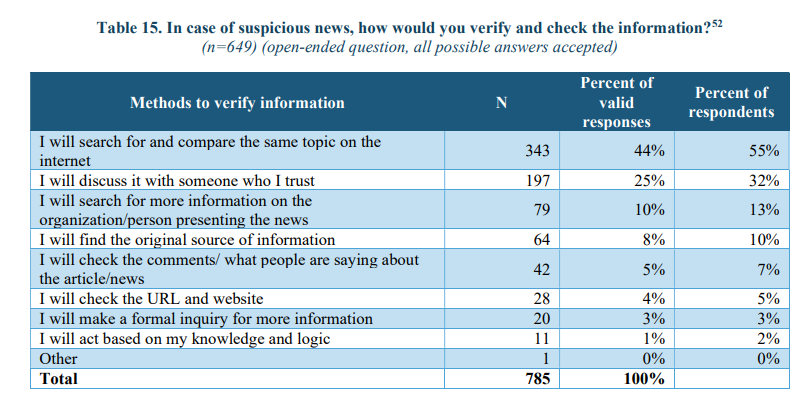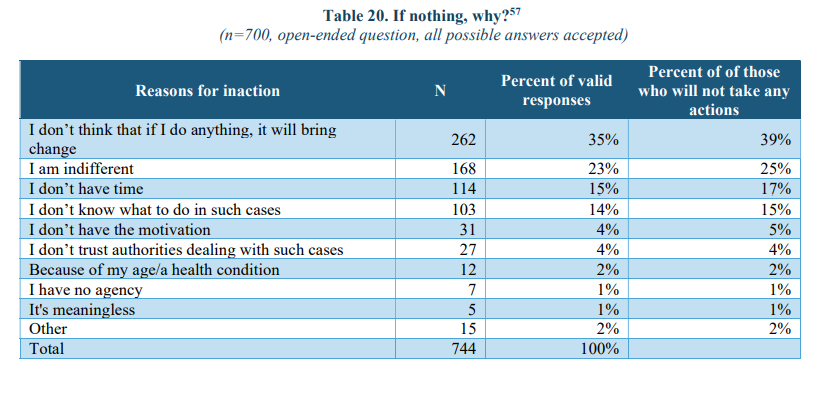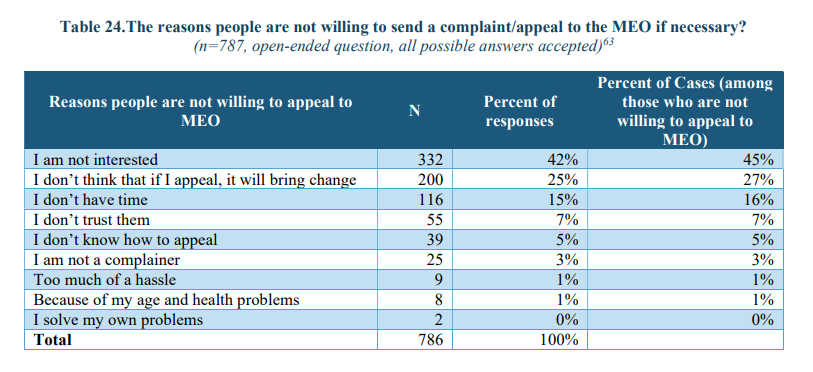Misleading or irrelevant headlines, mushrooming websites that generate vast quantities of false information, and intentionally manipulative and impartial news.
We are surrounded by media content 24/7, and often, we consume it without even realizing it. To avoid getting overwhelmed, the media consumer needs to be able to distinguish between high-quality and low-quality media products, filter the sources they trust, and learn how to navigate the media landscape to avoid falling prey to unfair competition.
Increasing media literacy is the primary way to enhance media immunity.
As part of their “Freedom of Speech and Media Consumption in Armenia” study, Internews aimed to determine the media literacy level among the public and how people respond to false or misleading information.
The survey revealed that out of 1,109 participants, only 39% have the ability to differentiate between facts and opinions and recognize manipulative tactics used by the media. Furthermore, only 18% claimed to be able to distinguish between unverified information and fact-checked news.
The participants considered information false if it lacked probability, sources, matching title and content, or verifiability.
55% of respondents chose to search and compare information on the Internet as their first method of fact-checking, while 32% preferred to discuss what they read or heard with someone they trust.
Only 13% and 10% of respondents confirmed their willingness to take the necessary steps to identify the source of the information.

When people have doubts about the information they receive and later discover that it is false or biased, 65% of the survey participants choose not to respond. On the other hand, 30% of the respondents prefer to boycott or stop watching the source of the information. Only 2% of the participants found it acceptable to express their reluctance through comments.
Respondents cited feeling incompetent or powerless as the leading cause of passive media behavior, spreading misinformation and fake news.

Regarding media ethics issues, over 50% of the survey participants expressed dissatisfaction with the journalistic ethics and professionalism level in Armenia. They believe the absence of impartiality, independence, and respect is especially evident in local newsrooms. 26% of the respondents either found it challenging to answer the question or declined to do so.
Only a few survey respondents were aware of the Media Ethics Observatory (MEO), a resource for handling ethical issues and professional standards violations in the media. Only 9% of respondents could identify the MEO and its activities correctly. However, in case of ethical problems and breaches of professional standards, 24% of the participants were willing to file an application or complaint with the MEO.
According to the survey, 45% of people asked why they didn’t apply to the MEO cited lack of interest as the main reason. 27% of respondents were unsure if anything would change after doing it. Other reasons included “I don’t have time,” “I don’t trust the institution,” “I don’t know how to apply,” and various other reasons. Only 3% of respondents stated that they were “informants”.

During the study, we aimed to find a balance between the work of local media and the needs and demands of media consumers. As a result, we highlighted the topics that the respondents would like the news media to cover more. The top three most requested topics were security, education, and politics.

It was found that 17% more people requested security information than education. When asked about the importance of both topics, an equal number of participants voted for security and education. Specifically, 92% of the participants considered both topics important, 4% considered them somewhat important, and only 4% considered them unimportant.







